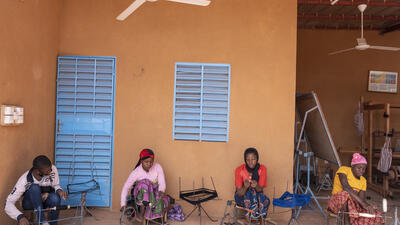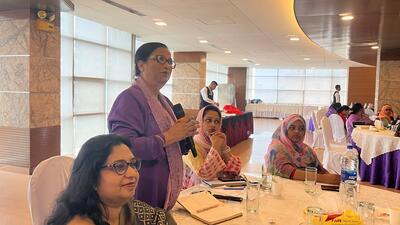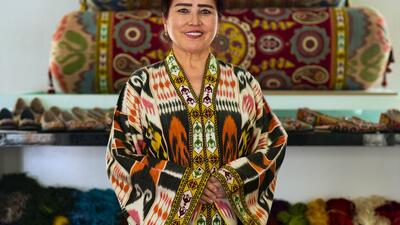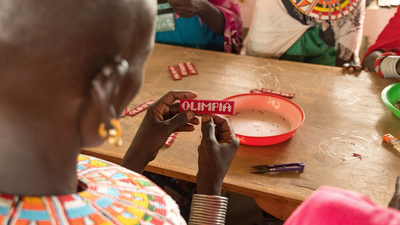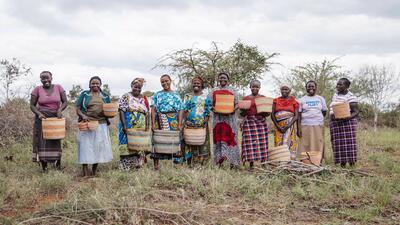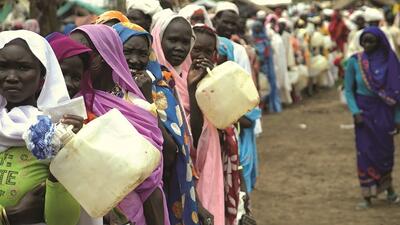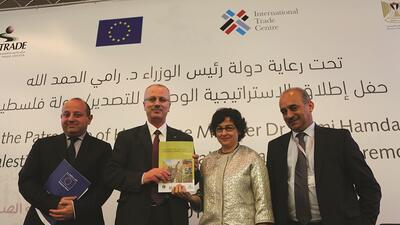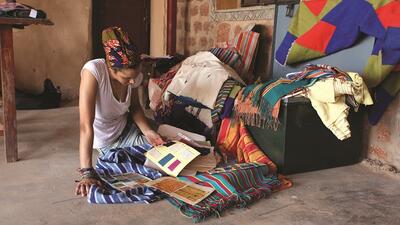Women and trade in Somaliland
The role of women in Somaliland, the north-western territory of Somalia, has changed dramatically since the country’s long-time dictator was overthrown in 1991, prompting the collapse of the economy and leaving scores of men unemployed. While men still struggle to find work they will accept, the upheaval created a unique opportunity for women to step into business.
Women bear the responsibility of providing for their families as breadwinners. Very few are employed in the formal sector, but large numbers still work to meet the needs of the family. Hargeisa, the capital of Somaliland, has witnessed a booming informal economy over the past few years. The skills and competencies women exhibit in handling their businesses — in addition to their household chores — is impressive. Hargeisa’s marketplace is teeming with female workers, challenging assumptions about the traditional place of women in Somali society.
Many women, rather than working for someone else, prefer to start their own small business. Businesses selling khat (a mildly narcotic leaf which is chewed), gold, cosmetics and textiles are operated and managed mostly by women, not to mention the women who venture into the market to sell food items. Another category consists of those who have financed a small restaurant or retail shop and are working to repay the loan. Others carry goods on their shoulders, as they have no shop and cannot rent a sales point. These itinerant traders form an essential part of Hargeisa’s economy.
Despite the prevalence of small, women-owned enterprises, profits are minimal and a majority of women in business barely make ends meet and remain poor. As Somaliland strives for international recognition as an autonomous country, it faces many economic challenges: external investment is low, underemployment and unemployment are high, and the economy is unstable.
Women face many obstacles — some gender-specific and some common to all business owners — to prosperity in the formal economy.
Domestic hurdles
Women’s economic status is caught in a web of poverty and a lack of basic skills. Most women are illiterate and need men's help to do basic accounting and communicate with the world outside. Therefore capacity building, especially through education, must be at the core of any economic initiative. Advancement will require greater resources and changes to the national budget, but the overwhelming effect of the war is a lack of government funds.
Despite these challenges, the Ministry of Trade and Industry continues to support women’s participation in economic activities, ensuring that policy and legal mechanisms are in place, and lifting barriers that have traditionally kept women from obtaining licenses to trade and accessing financial services. So far, this policy has generated positive results, as measured by the overwhelming number of women seeking trade licences, microcredit and technical support from the ministry.
Women have been found to spend more of their income on their households, so when aid is directed towards increasing women’s incomes, the welfare of whole families is improved — particularly in education, diet, health care and basic family sustenance. Therefore, it is important to provide women entrepreneurs with technical and managerial education, infrastructure, market information and contacts with external markets, while minimizing administrative impediments to doing business.
The main obstacle at the moment is the lack of national finance and microfinance schemes for women enabling them to conduct business effectively. The lending institutions do not necessarily have women-friendly loans and together do not have a cohesive policy that targets women. Thus the government depends on international development partners and the private sector to finance small- to medium-sized enterprises, which allows every lending institution to develop its own internal microfinance policy.
International trade barriers
In Somaliland, women are rarely in the upper echelons of the business sector, but a few do vibrant trade in various sectors, and on the whole, both importers and exporters benefit from a regulatory environment that is conducive to trade. The port of Berbera, a trade hub also for landlocked Ethiopia, is one of the government's main revenue streams.
However, trade barriers do exist, such as those regularly encountered by Beyomol Gums, which exports aromatic gums and resins:
• Difficulty clearing goods at receiving ports, which can cause delays and surcharges;
• Difficulty in opening business bank accounts abroad to facilitate payments from clients;
• Banking restrictions when paying suppliers in countries, such as Somaliland, that do not have a formal banking system;
• Visa restrictions that make business travel to western countries nearly impossible, preventing crucial face-to-face meetings needed to secure sales.
Because of its unofficial status, Somaliland cannot enter into negotiations and formal trade agreements with other nations to ease the trade barriers exporters face. The current climate is therefore highly restrictive for women entrepreneurs. Real change at the local level is needed, and this will require action at the policy level, for example in education and infrastructure, as well as work with higher level business networks to attract investors.




